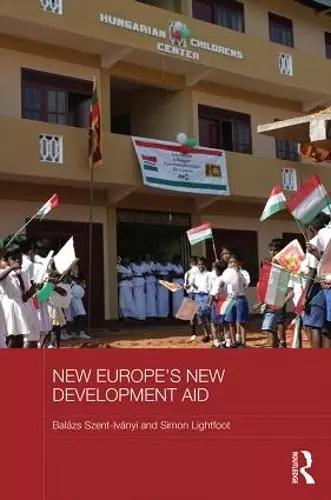New Europe's New Development Aid
Simon Lightfoot author Balázs Szent-Iványi author
Format:Hardback
Publisher:Taylor & Francis Ltd
Published:5th May '15
Currently unavailable, and unfortunately no date known when it will be back
This hardback is available in another edition too:
- Paperback£24.99(9781138079168)

This book examines the international development policies of five East Central European new EU member states, the Czech Republic, Hungary, Poland, Slovakia and Slovenia. These countries turned from being aid recipients to donors after the turn of the millennium in the run-up to EU accession in 2004. The book explains the evolution subsequent to EU accession and current state of foreign aid policies in the region and the reasons why these deviate from many of the internationally agreed best practices in development cooperation. It argues that after the turn of the millennium, a 'Global Consensus' has emerged on how to make foreign aid more effective for development. A comparison between the elements of the Global Consensus and the performance of the five countries reveals that while they have generally implemented little of these recommendations, there are also emerging differences between the countries, with the Czech Republic and Slovenia clearly aspiring to become globally responsible donors. Building on the literatures on foreign policy analysis, international socialization and interest group influence, the book develops a model of foreign aid policy making in order to explain the general reluctance of the five countries in implementing international best practices, and also the differences in their relative performance.
"The book is thoughtfully organised, well-written and provides relevant material on an important aspect of supranationalism and adaption to international organisations—which is studied almost under in vitro conditions. In addition to the authors’ plea for further research on the stance of CEECs vis-à-vis the issue of policy coherence, it would also be important to expand the geographic scope by including cases such as Estonia, Latvia and Lithuania—countries which were not able to build on previously established frames of development cooperation—and to relate the findings to other studies on (post-accession) Europeanisation in light of the EU’s post-Brexit crisis as a global actor."
STEFAN GÄNZLE, University of Agder, Europe-Asia Studies
ISBN: 9780415870344
Dimensions: unknown
Weight: 580g
226 pages